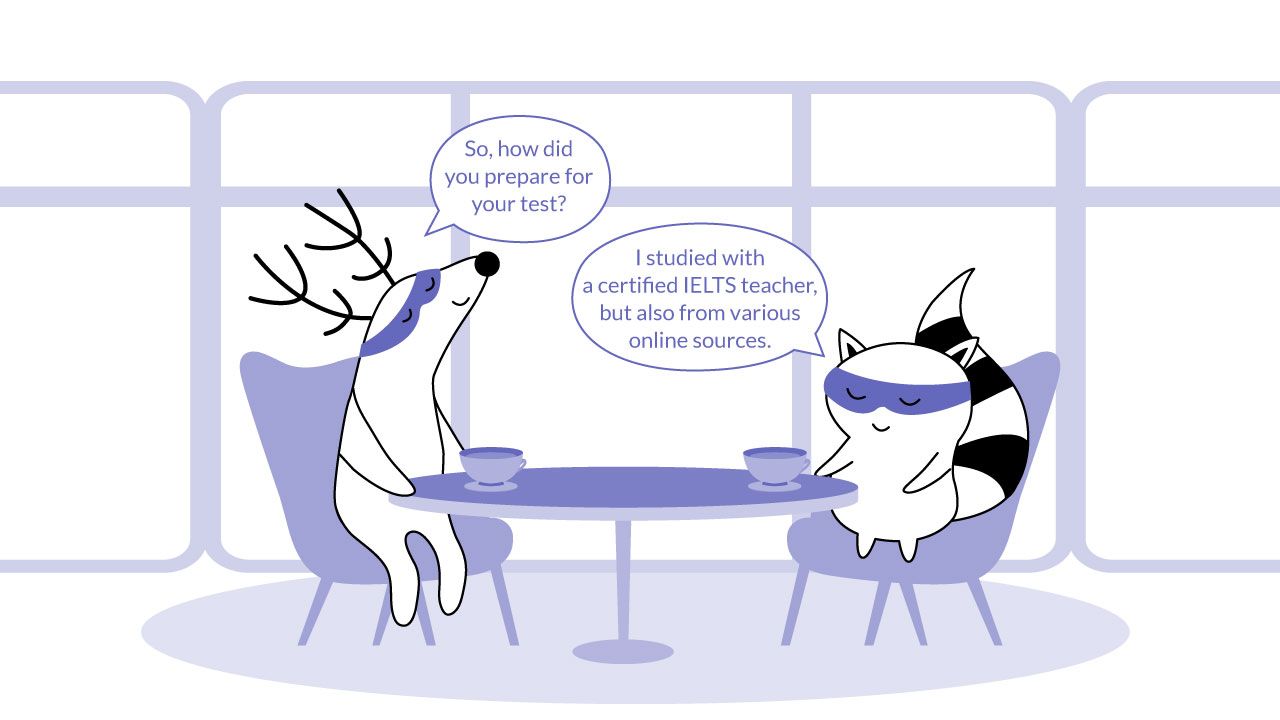
Everyone knows that English is a difficult language to learn. There are so many rules, and even more exceptions to those rules. But what makes the English language more difficult for some is the vast number of idiomatic expressions that are used in everyday conversation.
An idiom is a phrase or expression that has a meaning that is different from the literal meanings of the individual words that make it up. English idioms are a part of figurative language, meaning that the phrase has a meaning beyond the literal definition of the words. Checking each word’s literal meaning in a dictionary won’t be helpful, as they’re used in an unusual manner.
For this reason, idiomatic phrases can be difficult to understand and even more difficult to use in a sentence correctly. But with a bit of practice, you can start using English idioms like a native speaker!
In this article, we will go over the most common English idioms you should know, along with their meanings and examples of use in a sentence. Check them out!
Learn English with Langster
Food Idioms in English
In English, there are a number of idioms that relate to food. These idioms can be used to describe different emotions or situations. Here are the most common food idioms explained:
a piece of cake
Meaning: easy to do
You can use this idiom to describe a task or situation that is very easy.
- I don’t know why everyone is stressing out about the test, it’s going to be a piece of cake!
a lot on your plate
Meaning: having a lot to do
If you have too much to do, you can say this to explain that you can’t take on additional tasks.
- I’m sorry I can’t help you with that project, I already have a lot on my plate.
not my cup of tea
Meaning: not something I like
Use this idiom to say that you don’t like something or that it’s not your thing.
- I tried skiing, but it’s just not my cup of tea.
a taste of your own medicine
Meaning: getting treated the same way you treat others
This idiom is often used as a form of revenge. If someone gets treated the same way they treat others, they are said to be getting a taste of their own medicine.
- He was always making fun of me, so I didn’t feel sorry when I saw people calling him names – he got a taste of his own medicine.
take it with a grain of salt
Meaning: to not believe something completely
If you take something with a grain of salt, it means that you don’t believe it completely. People often use this idiom when they’re not sure about the information or advice they are giving you.
- “The Rules” has a lot of good advice about dating, but it was also written in the 90’s so take it with a grain of salt.
bigger fish to fry
Meaning: to have more important things to do
If you have bigger fish to fry, it means that you have more important things to do. People use this idiom to brush off someone or something that is not a priority.
- I’m sorry I can’t help you with your project right now, I have bigger fish to fry.
the best thing since sliced bread
Meaning: something that is amazing or innovative
You can use this idiom to describe how much you like something or to express how impressed you are.
- I just got the new iPhone and it is the best thing since sliced bread!
to bite off more than you can chew
Meaning: to take on more than you can handle
This idiom describes how it feels when you take on too much responsibility or try to do too much at once.
- I bit off more than I could chew when I agreed to volunteer for three different organizations.
to put all your eggs in one basket
Meaning: to put all of your resources into one venture
This idiom often serves as a warning against taking too big of a risk. It's better to spread out your resources so that you don’t lose everything if your one investment falls through.
- I know you're thinking about investing all your savings into Bitcoin, but you shouldn't put all your eggs in one basket.
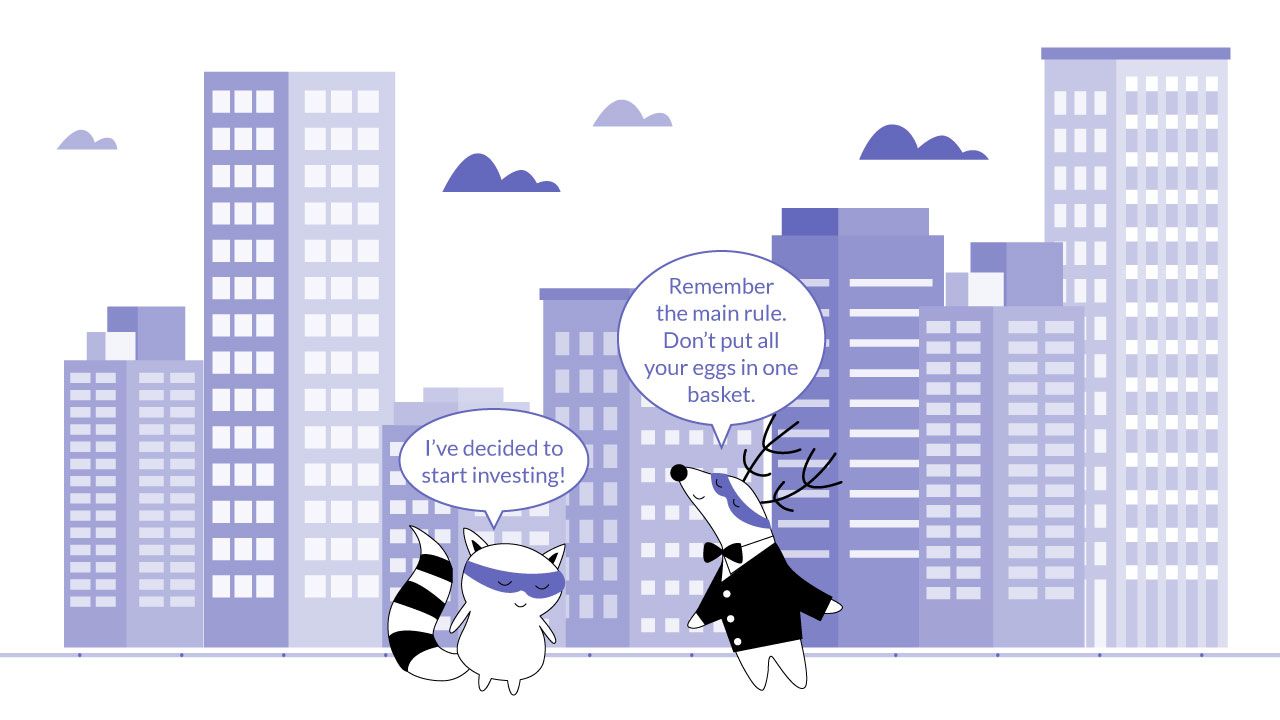
Animal Idioms
There are also a number of English idioms that use animals as a metaphor. These idioms can be used to describe different personality types or behaviors. Here are some of the most common animal idioms explained:
a wild goose chase
Meaning: to waste time searching for something that doesn't exist or that is not worth finding
This idiom is often used to describe a fruitless search.
- I spent hours looking for my lost keys, but it was just a wild goose chase.
straight from the horse's mouth
Meaning: to get information from a person involved, i.e., directly from the source
This idiom makes more sense when you know a bit about horses. You can tell a lot about a horse by looking at its teeth. Thus, this phrase is used to describe when you hear something directly from the person who said it.
- I heard straight from the horse's mouth that the company is going bankrupt.
to beat a dead horse
Meaning: to continue doing something even though it is no longer effective
Horses are often whipped to make them run faster. However, once a horse is dead, whipping it will do nothing. If someone continues to do something even though it is no longer necessary or productive, we use this idiom.
- I know you're upset, but there's no need to keep arguing about it. You're just beating a dead horse at this point.
to go cold turkey
Meaning: to stop doing something suddenly
We say “cold turkey” to describe when someone quits a bad habit abruptly.
- I decided to go cold turkey to quit smoking. I threw my cigarettes away two weeks ago and haven’t touched them since.
raining cats and dogs
Meaning: raining very heavily
This is one of those common idioms that don’t make much literal sense. “Raining cats and dogs” is an expression often used to describe extremely heavy rains. Some say it comes from the times when cats and dogs would often sleep in the thatch roofs of houses, and would fall through when it rained heavily.
- I got soaked in the rain because I had forgotten my umbrella. It was literally raining cats and dogs!
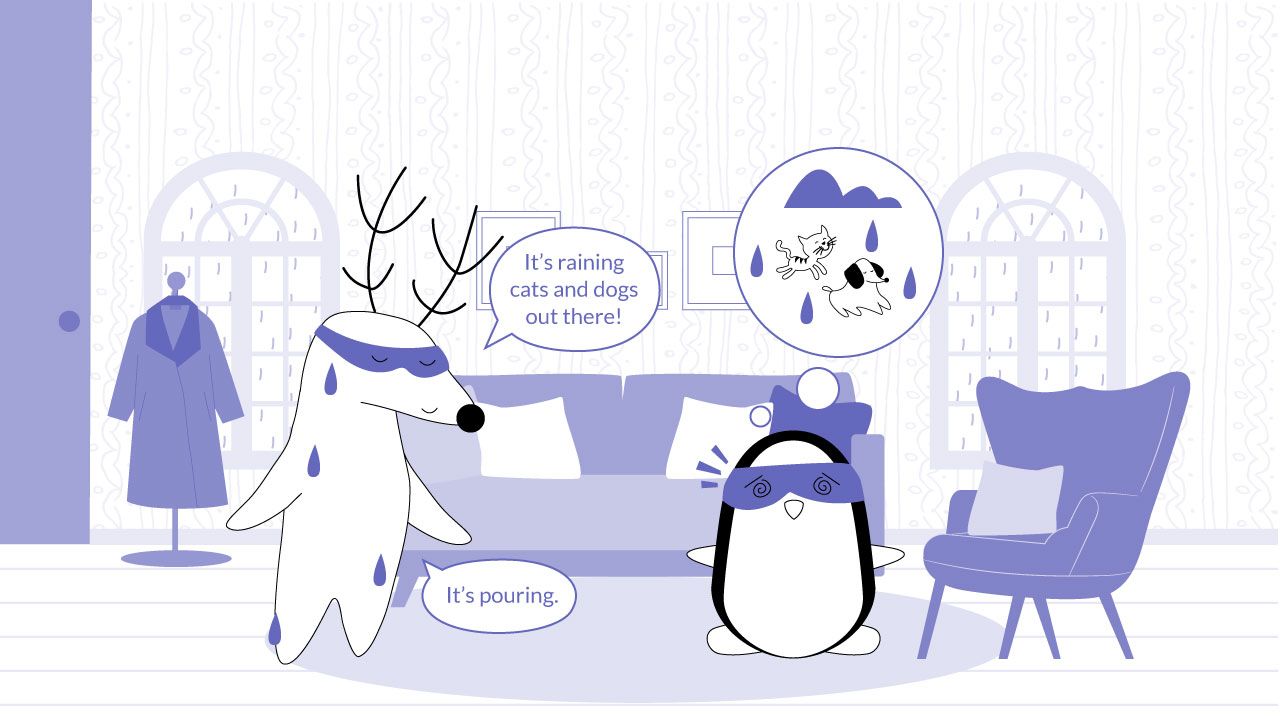
the early bird gets the worm
Meaning: being first improves the chances of success
This expression encourages someone to start working on something as soon as possible.
- If you want to get the best grade in the class, you need to start studying now. The early bird gets the worm, after all.
to kill two birds with one stone
Meaning: to accomplish two tasks at the same time
This idiom means someone is able to accomplish two things with just one action.
- I killed two birds with one stone by doing my grocery shopping and banking online. It used to take me hours to do those chores.
English Idioms with Body Parts
There are also a number of common English idioms that use body parts. You can use these idioms to describe different emotions or states of being in the English language. Here are some of the most common body part idioms explained:
butterflies in your stomach
Meaning: to be nervous or anxious about something
This idiom describes that fluttery feeling in your stomach when you are nervous or excited.
- I always get butterflies in my stomach before an important meeting.
to be all ears
Meaning: to be ready and willing to listen
This is a great idiom to use when someone offers to help you or give you advice. Imagine how well a person could listen if they were literally made entirely out of ears.
- If anyone has anything constructive to add, I am all ears.
head in the clouds
Meaning: to be absentminded or dreamy
This idiom is used to describe someone who is not paying attention or is lost in thought.
- Of course Sally wasn’t paying attention in class, she’s always got her head in the clouds.
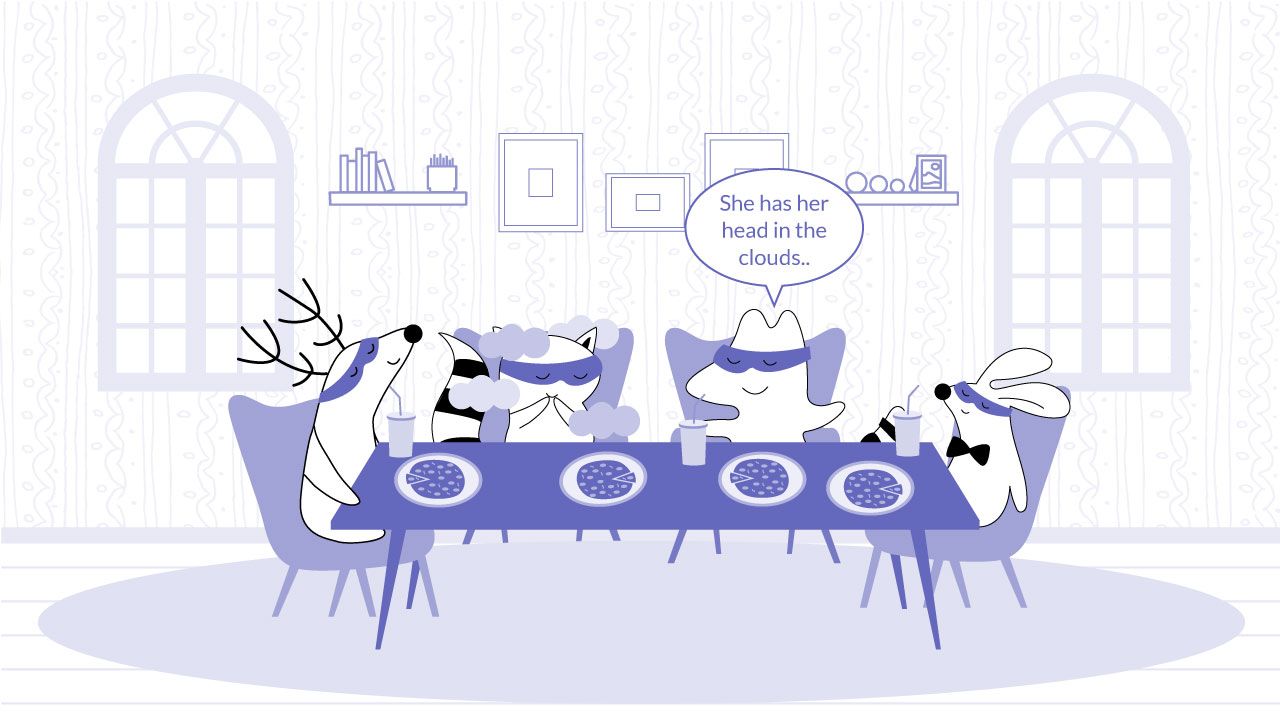
to pull someone's leg
Meaning: to joke about something
People use this idiom when they are joking with someone.
- I was just pulling your leg when I said I saw a UFO.
to cost an arm and a leg
Meaning: to be very expensive
You can use this phrase to describe when something is too expensive.
- I can't believe this price tag is real! This dress is going to cost me an arm and a leg.
by the skin of your teeth
Meaning: barely, just barely
This idiom is used to describe how close you came to failing or not succeeding. It means “a close call.”
- I passed the test by the skin of my teeth.
to stick one’s neck out
Meaning: risk incurring criticism or anger by acting or speaking boldly
This means that you are ready to support someone or something, even if it may have negative consequences for you.
- I'm going to stick my neck out and tell the boss what I really think about his new idea.
Other Common English Idioms
There are estimated to be at least 25,000 idiomatic expressions in the English language. While we cannot go over every single one of them in one article, we can provide some more English expressions native speakers use in their everyday English. We’re willing to bet, some of them already sound familiar!
a penny saved is a penny earned
Meaning: it's better to save money you already have than to spend it
This is a saying people use to encourage others to save money.
- My parents always taught me that a penny saved is a penny earned.
once in a blue moon
Meaning: very rarely
A blue moon is an extra full moon in a season. There are typically one or two blue moons every year. We use the phrase to mean something doesn't happen very often.
- I haven’t seen Jeff in a while, but he comes to town every once in a blue moon.
to bark up the wrong tree
Meaning: to be mistaken about something
Imagine a dog chasing a cat that runs up a tree. The dog sees the cat go up one tree, but doesn’t realize the cat has moved to the next tree over. So the dog stands there, barking at a tree with no cat in it. This idiom is often used when someone is mistakenly accusing someone else of something.
- I think you're barking up the wrong tree if you think I stole your wallet.
between a rock and a hard place
Meaning: to be faced with two difficult choices
Imagine being pinned by a large rock against a canyon. You’re stuck with difficulties either way. This idiom is used when someone has to choose between two difficult options.
- I'm a rock and a hard place. Should I take the job in New York or stay here in my hometown?
to face the music
Meaning: to accept the consequences of one's actions
This idiom is often used when someone has done something wrong and needs to face the consequences.
- I'm going to have to face the music for lying to my parents. They're going to be so disappointed in me.
to bite the bullet
Meaning: to do something difficult or unpleasant
This idiom comes from the American Civil War when doctors had to remove limbs with no anesthetic. Legend has it, soldiers were given a bullet to bite during their surgeries. This phrase is often used to describe when someone needs to do something that they don't want to do.
- I'm going to have to bite the bullet and ask for a raise. I know my boss isn't going to be happy about it, but I need the money.
to look like a million dollars/bucks
Meaning: to look very good, elegant, or attractive
This idiom is used to describe when someone or something looks great.
- You look like a million bucks in that suit!
it's always darkest before the dawn
Meaning: things will get better after they seem to be at their worst
People say this as a way to encourage someone who is going through a difficult time.
- I know you're struggling right now, but it's always darkest before the dawn. Things will get better, I promise.
through thick and thin
Meaning: during good times and bad times
People use this phrase to talk about their friends who are there for them no matter what.
- I've been married to my wife for 20 years, and I've loved her through thick and thin.
the whole nine yards
Meaning: everything that is possible or available
This idiom is related to American football. It describes a situation when everything that is possible or necessary has been done.
- We're going to need the whole nine yards for this project. That means we need everyone working on it, from the janitor to the CEO.
to beat around the bush
Meaning: to avoid saying what you really mean
Imagine a hunter trying to catch an animal in a bush. If you hit the bush directly, you can kill it. If you beat around the edges, the animal will get away. This idiom is used when someone is being indirect or taking too long to get to the point.
- Can you just tell me what you want? Stop beating around the bush!
to get a second wind
Meaning: to become less tired and have more energy
This idiom means a sudden burst of energy, especially during a physical task.
- I was getting really tired, but then I got a second wind and was able to finish the race.
to throw caution to the wind
Meaning: to stop being careful
This idiom is used when someone decides to stop being careful and takes a risk.
- I was feeling pretty lucky, so I threw caution to the wind and bet all my money on the roulette table.
just the tip of the iceberg
Meaning: there is more to something than what can be seen
You know how the visible part of an iceberg is only about 10% of it? This idiom is used to describe when there is more to something than what can initially be seen.
- The fire destroyed the house, but that was just the tip of the iceberg. We also lost all our belongings and our memories.
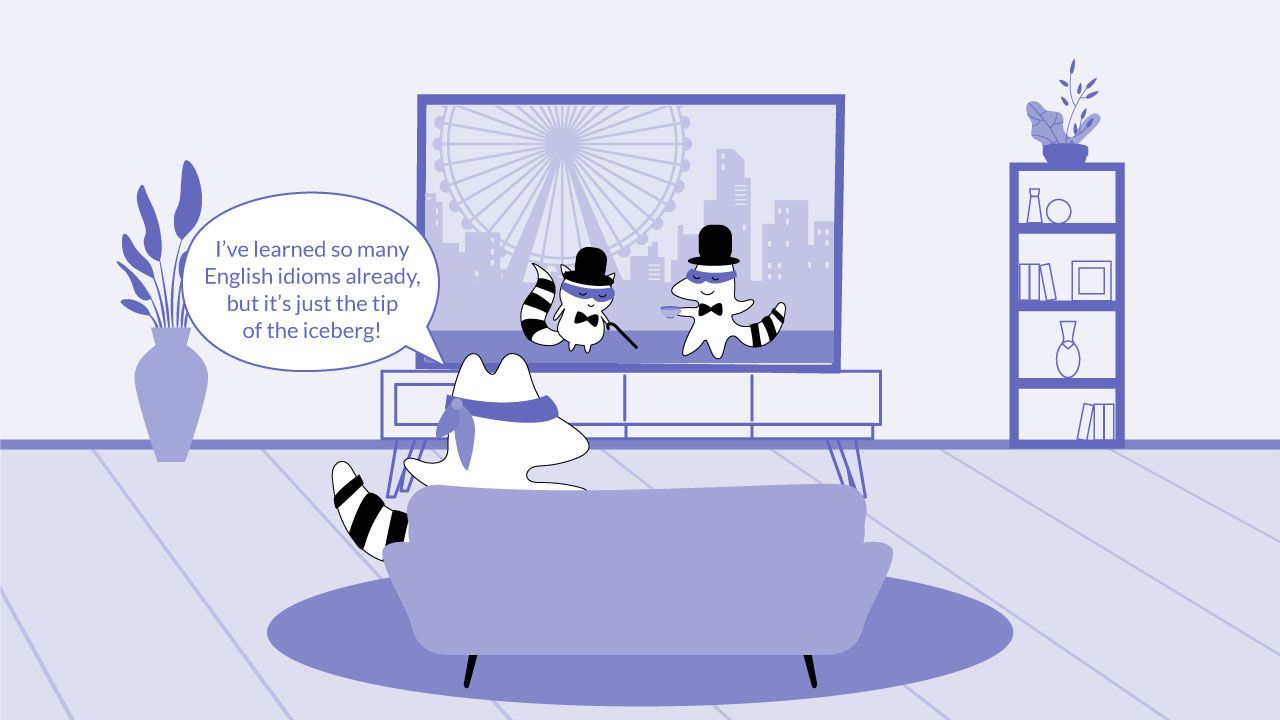
go back to the drawing board
Meaning: to start over
The “drawing board” is the imagined starting point of any project. This idiom is used in Business English when someone needs to start something again from the beginning.
- We tried our best, but the project was a failure. I guess we'll just have to go back to the drawing board.
every cloud has a silver lining
Meaning: good things can come from bad situations
Dark clouds often have a halo around them. You can use this idiom to comfort someone who is going through a tough time or to look at the situation from another perspective.
- Even though I lost my job, I'm glad it happened because it gave me the opportunity to start my own business. Every cloud has a silver lining!
The Bottom Line
Idioms can be a lot of fun to use, but they can also be very confusing if you don't know what they mean. Learning common English idioms is a great way to improve your speaking skills and the overall understanding of the language.
With practice, you'll be able to use these idioms in your own conversations. Download our Langster app to find even more examples of English idioms in different contexts, and don't forget to have fun with them!







